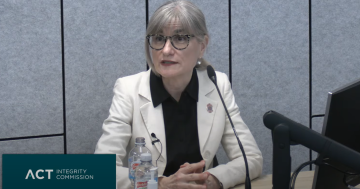 The ACT’s Drug and Alcohol Court has been celebrated as a success after its first two years of operation.
The ACT’s Drug and Alcohol Court has been celebrated as a success after its first two years of operation.
Attorney-General, Shane Rattenbury said since its inception in December 2019, the ACT Drug and Alcohol Court had offered an alternative to custodial sentencing with therapeutic jurisprudence and holistic sentencing case management.
“To date, 46 Drug and Alcohol Treatment Orders have been imposed, with participants being a mix of genders and from diverse economic, cultural and ethnic backgrounds,” Mr Rattenbury said.
“Depending on the circumstances, Orders can require participants to engage in a range of different activities, including personal therapeutic counselling, treatment and intervention programs, relationship and family counselling as well as employment training,” he said.
“The scheme has so far produced five successful graduates with many more having progressed to the final phase of their Order.”
Mr Rattenbury said the purpose of the Court was to achieve long-term behavioural change and divert people from the criminal justice system and jail.
The Attorney-General said it took a problem-solving approach to dealing with a participant’s behaviour and provided targeted and structured health and justice interventions while holding people to account.
“Of the alumni there have been no further demonstrations of recidivism or fresh matter appearing before a court,” he said.
“A consistent feature demonstrated by participants over the course of their Order is an increase of pro-social modelling and community engagement through community volunteering, engagement and inclusion.”
Mr Rattenbury said some advanced participants had self-initiated mentoring and fostering roles to assist and support junior participants.
Acting Justice, Richard Refshauge, the Supreme Court judge supervising the Drug and Alcohol Sentencing List, said the graduates’ commitment was exciting and invigorating.
“I am proud to work with a large body of dedicated and able professionals in the Treatment Order team and the many counsellors and service providers who deliver such valuable assistance to participants and have made a substantial contribution to the protection of the community and its health,” Acting Justice Refshauge said.











